Operation Flashpoint: Cold War Crisis
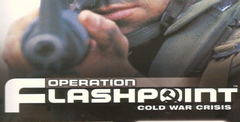
| a game by | Bohemia Interactive |
| Platform: | PC (2001) |
| User Rating: | 7.4/10 - 14 votes |
| Rate this game: | |
| See also: | First Person Shooter Games, Operation Flashpoint Series |
1985 was clearly an important year for Marek Spanel. While the rest of us were glued to EastEnders or fiddling with transforming robots, the youth that would later found Czech developer Bohemia Interactive Studio was behind the Iron Curtain, unaware that things were about to change forever. Not that Marek or elder brother Ondrej could give a toss that the Politburo had just selected Mikhail Gorbachev as the new leader of the Communist Party. No, there were far more important events unfolding around them, events that would soon result in them being in possession of a Texas Instruments 99/4 home computer with a 3.3MHz processor and a full 16KB of RAM. And to them, this was one Western commodity that was even more valuable than a pair of Levi's.
How it got into our home in those old communist days is another story, winks Marek. But the only thing we were concerned with was that we hadn't any games for it - and we really wanted to play games badly. We were probably the only users of that type of computer in the entire country at the time, and the only thing we could do with it was to learn how to program its built-in BASIC language.
The duo soon began to enjoy the process of making games more than they did playing them and soon realised that they'd found their calling.
Ondrej was always the smarter one, recalls Marek modestly. He was an excellent programmer. I tried to keep up with him but I never could - what took him 15 minutes to code took me a day.
Onwards And Upwards
Having upgraded to an Atari 800, the two brothers continued to learn their craft, creating a number of titles mostly for their own amusement. There was some recognition for their home-grown talents, but it wasn't until they moved on to bigger and better machines that the idea for an expansive 3D action game began to take root.
The first real attempt to fulfil their ambition was Gravon, a futuristic 3D tank game that might have been better remembered had it not been released for the short-lived Atari Falcon, at a time when most computer-gamers had already moved over to PC. We always tried to create a game in a large and dynamic exterior world and Flashpoint was our second attempt, says Marek. After Gravon, we wanted to create a 3D clone of the 8-bit classic River Raid, but such limited and linear gameplay just didn't inspire us.
For their next point of inspiration, Marek and Ondrej looked closer to home. And given their surroundings, it didn't take long to find a suitably rich theme, one that would allow them to create a vast, interactive and dynamic world, through which the player could enjoy almost unbounded freedom. Growing up in the Communist bloc, the '80s were very close to us, says Marek. It was the time when we started to think more about the world around us and to see through all the lies and official propaganda. I was listening to Voice Of America every night and Ronald Reagan was scaring the communist regimes.
This period was a very important and influential part of our lives, so it was only logical for it to be the focus of the game. Of course, it also allowed us to include all sorts of weapons and vehicles that we were already familiar with. Marek admits: When we started work on the game that would become Flashpoint, we weren't aware of any other titles that shared the same concept or themes. As time passed, games like Spec Ops, Delta Force and Rainbow Six were released, which pushed us to add and improve the infantry part more than we ever expected. But we always followed our own path.
A Kind Of Magic
Poseidon, as the project was then known, took the team almost three years to develop. Back then, the game was a far more open-ended and dynamic military sim than the one we know and love, with no linear mission structure and little storyline to speak of. Even so, it quickly caught the attention of US-based Interactive Magic. The publisher saw the potential of the unique 3D engine, able to render vast and varied geography across which all manner of ground vehicles, aircraft and foot soldiers could move with very little processing effort.
On a visit to the offices in the spring of 1999, Interactive Magic demonstrated the game's day and night cycles, with shadows lengthening as the sun arced from zenith to darkening horizon. It was an impressive demo, and our only scepticism arose from the back-catalogue of the developer. Unfortunately, Interactive Magic folded within months of its visit.
Bohemian Crapsody
We were a team of just four people when we signed our first contract," says Marek. We really didn't know anything about gaming as a business. We were naive, driven by pure enthusiasm. We felt we were in no position to pick and choose, plus we believed in anything Western or American, so we considered the contract a real success and it truly helped us to keep going with the development.
When it became clear that Interactive Magic was in serious financial trouble, we had to decide what to do. By forming Bohemia Interactive as a company, it gave us the impetus to carry on. We managed to acquire extra funding and increase the team. Poseidon then changed its name to Flashpoint 1985 and the game became much more ambitious.
Bohemia's problems weren't over, though. In the process of Interactive Magic's liquidation, all of its unreleased licences fell to rising French publisher Ubisoft. Despite the fact that Flashpoint was starting to take shape, Ubi released Bohemia from its contract, an act that would prove to be very short-sighted.
According to a PR spokesperson at the time, the game was dropped because its military themes were at odds with the company's family image, its biggest property at the time being Rayman. Ironic then that today. Ubisoft's most valuable franchises include Rainbow Six and Splinter Cell. It just didn't work out for us, remembers Marek. "It was a bit more complicated in legal terms, but mostly Ubisoft and ourselves just couldn't find a common interest in the project. Maybe it was more interested in its later acquisition of Red Storm... I guess we'll never find out.
Glad To Be Of Help
Despite the lack of publisher support, the newly created Bohemia Interactive Studio forged quietly ahead with its ambitious plans. Here at PC, we were incredulous that no publisher seemed interested in the game, and we badgered Bohemia to allow us to run a preview.
Understandably, the team was cautious of external interests, and made us wait until the game was ready to be unveiled properly. When it was, via a new website and a trailer showing extensive gameplay footage, interest in the game just exploded.
At the beginning of 2000, we'd been looking for a publisher for quite a long time, remembers Marek. "Then suddenly, it was early summer and three big publishers started to show an interest in the game. And after reading the article in PC, Codemasters invited us over to its offices in Warwick. Marek continues: The company seemed a bit more interested in the game as a game, rather than just a commercial property. It also had the feel of a familyrun type of business - so in the end, we decided that its offer was the best and signed a deal.
Internal Affairs
Even then, Bohemia's problems weren't completely over. There were numerous technical difficulties internally, many of which stemmed from the extended development time and the perhaps over-ambitious blueprint.
Our graphics engine was originally created before any real 3D acceleration was possible, recalls the Bohemia founder. DirectX 2.0 just didn't offer what we needed. Later on, we could have opted for an off-the-shelf engine like Quake or Unreal, but none of them could deliver what we needed. Even if they had, we didn't have the money to license them, so it was never an option anyway.
Even so, development moved rapidly once Codemasters was on board. Interest in the game continued to grow, causing even more revisions to the game design. Codies decided that without stable multiplayer facilities, the game would risk stalling in the rabid US market, and this meant Bohemia's headaches multiplied even further.
Looking back, the multiplayer game was never strong and we had to work more on it after the game's release, Marek admits. It would have been fantastic to have had rock-solid multiplayer straight out of the box, but I don't think it's possible for a first game.
Sometimes we started to worry about how long we'd been working on the game, but generally the progress was always constant and visible, and we never really got bogged down. Now, ten years since we started on Flashpoint, I can honestly say that I don't regret anything and I'm still happy with the game... We surpassed our original vision many times.
Just Desserts
Some months prior to the game's eventual release, a playable demo was released - and within days it was calculated that over a million people had downloaded it. Bohemia was understandably amazed.
On its eventual full release in June 2001. Operation Flashpoint: Cold War Crisis topped the charts across Europe - and within a few short months it had reached the magic one million sales figure. Today, after the release of the Red Hammer and Resistance expansion packs, sales of the game exceed 1.2 million.
As fans will recall, the story didn't end there. It wasn't just the public taking an interest in the game - the military had caught wind of Flashpoint's realism and detail too. It was rumoured the British Army had taken a keen interest, but of course, having commissioned tailor-made versions of Doom and Rainbow Six in the past, the US had to go one better...
They took a real interest in our game engine, says Marek. We teamed up with Coalescent Technologies, a company that had worked with the US military for years, and assigned our newly formed team in Australia to the project. After a year in development, the VBS1 (Virtual Battlefield System) project debuted across the worldwide servers of the US Marine Corps. Today, a number of other military organisations are using VBS1 and even regular Flashpoint as training tools. We're also continuing to work towards improving it for the military."
We're sure the irony isn't lost on the Bohemia team that a game from the former Eastern Bloc is today used to train Western armies. It's also true to say that, in many ways, Bohemia Interactive has been the vanguard for a new invasion on the West by developers from Eastern Europe.
I know there are many successful games from countries of the former Soviet Bloc and I'm confident it's going to continue," concludes Marek. I'm not sure we're figureheads, but I hope the success we've had with Operation Flashpoint will show other ambitious developers - wherever they may be - that it's possible to succeed, even with your first project and with a young team.
Download Operation Flashpoint: Cold War Crisis

System requirements:
- PC compatible
- Operating systems: Windows 10/Windows 8/Windows 7/2000/Vista/WinXP
Game Reviews
And so it continued in a similar vein for several hours. We took delivery of the preview beta code several weeks ago and to say we were a little bit excited is akin to saying James Brown is a little bit funky. But what's surprising is how people have reacted to actually playing the game. Those of us for whom Flashpoint has been some kind of Holy Grail seem to have taken to it with the appropriate levels of reverence. It's looking like it will fulfil our dreams of military simulation perfectly. But others have been put off by the seemingly complex nature of the game. Counter-Strike already provides them with realistic-looking military ops, but it plays in a more immediate (and therefore fun) manner. That's the first test that developer Bohemia will have to pass, convincing the Rambo brigade to slow down and think their way through a scenario for a change. This is not likely to be a pick-up-and-play, instant-gratification kind of a game. It's a tactical simulator. Play it like an arcade game - gung-ho guns-ablaze do-or-die over-the-top Boys-Own stuff - and you'll spend most of the time looking at the historical quotes that accompany each death scene.
Flash-What?
I'm not going to waste time going over the background once again, bar the following condensed version for you Johnny-come-latelies. Cold War... infantry simulation... NATO vs Russia... real army tactics... multirole... vehicles, tanks and helicopters... advanced AI and tactical engine... multiplayer... made in Czech Republic. By far the biggest test is the AI engine and from what we're seeing here, it's very impressive indeed. Soldiers seem to run around, taking cover and hitting the deck when the shooting starts, following orders (and, impressively, giving them out in the middle of ever-changing tactical situations). Significantly better titan the A1 seen in the multiplayer co-op modes anyway, but that's more down to our lack of tactical nous than any problems with the game. If Bohemia can get the promised voice-over Net software working properly, and you can find players who are willing to take orders rather than the anarchistic, good for nothings that litter, then this could be a big hit online.
Test Drive
Other Flashpoint promises are also looking good. The multi-vehicle aspect seems to work well, with tanks proving an especially good laugh in multiplayer mode. The great thing is vehicles aren't just thrown in willy-nilly. In the early campaign missions, as you are still working your way through the ranks, you'll do little more than ride in the back of trucks or transport choppers. As you progress, you'll find yourself taking jeeps for a spin or stealing civilian cars to get out from behind enemy lines. Then there are the combat helicopters that you train up and eventually pilot. But it never feels gratuitous. You never think, 'this is just a jeep mission', 'this is just a tank mission...' All of which is testament to how adaptable the mission editor that comes packed with the game is (see side panel) and how well Bohemia seem to be using it. Missions feel suitably grand in scale. The confusion of war is impressively realised, something of an all-important first for a game of this type.
Bugwatch
Having said all that, let us inject a note of caution if we may. Impressive as the concept, thought, AI engine and technical content is, it's crucial that Bohemia polish the title immensely before they release it. Granted, all we've seen is early preview code, but given just how good Flashpoint has the potential to be, it would be a crime against life itself if the imminent release schedule forces the Czech group to cut comers now. We're not talking about fancy front ends or FMV sequences here. What we mean is how the game hangs together. Making the gameplay run in a fluid, enjoyable nature. Our advice, assuming Bohemia are paying any attention to us, is to let its publishers, Codemasters, take a hands-on role in the final stages, relying on its already proven talent in this field to give us the game Flashpoint deserves to be. If we have another Hidden & Dangerous, potential-overimplementation deal here, then there really is no justice in the world.
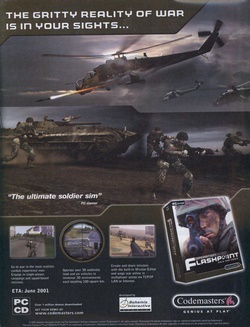
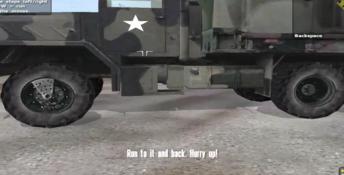
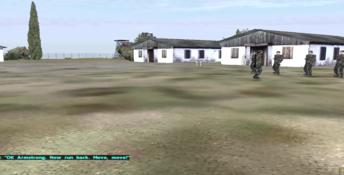
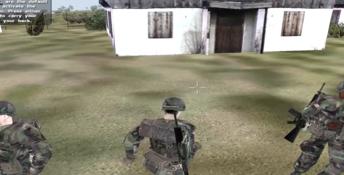
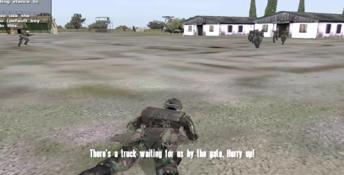
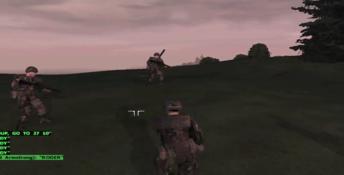
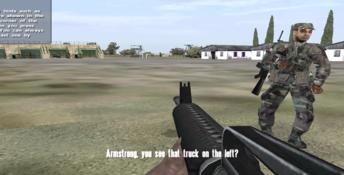
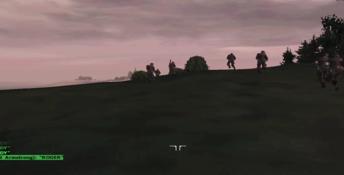
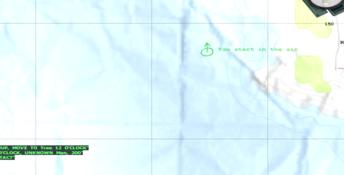
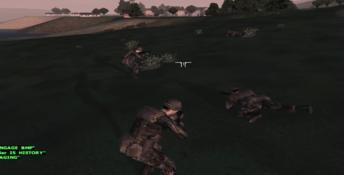
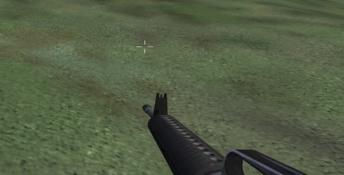
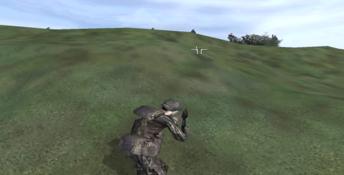
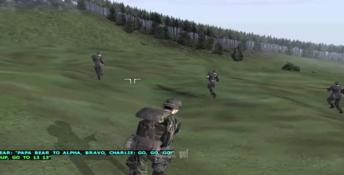
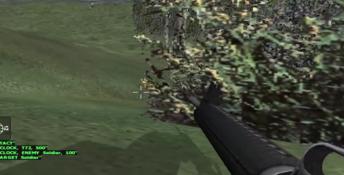
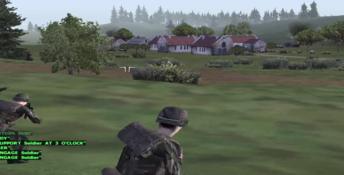
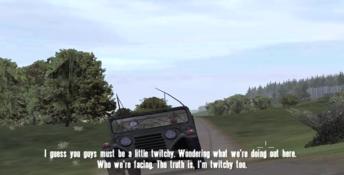
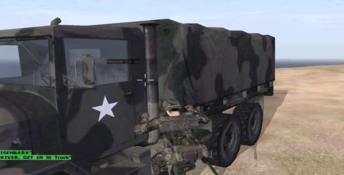
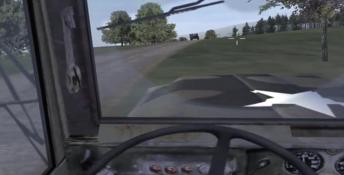
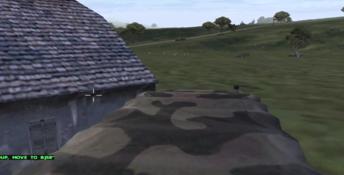
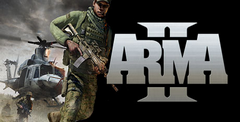 Arma 2
Arma 2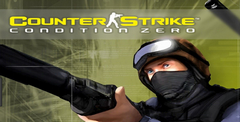 Counter-Strike: Condition Zero
Counter-Strike: Condition Zero
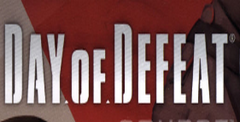 Day of Defeat
Day of Defeat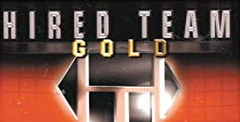 Hired Team: Trial GOLD
Hired Team: Trial GOLD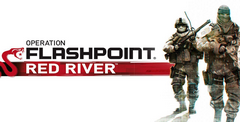 Operation Flashpoint: Red River
Operation Flashpoint: Red River
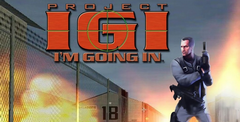 Project IGI: I'm Going In
Project IGI: I'm Going In
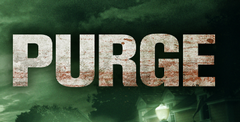 Purge
Purge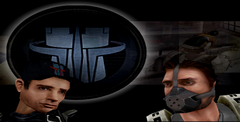 Quake 3 Fortress
Quake 3 Fortress
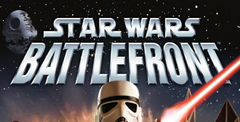 Star Wars: Battlefront
Star Wars: Battlefront
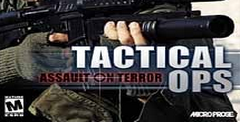 Tactical Ops: SWAT
Tactical Ops: SWAT
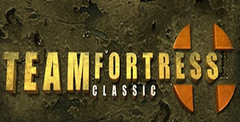 Team Fortress Classic
Team Fortress Classic